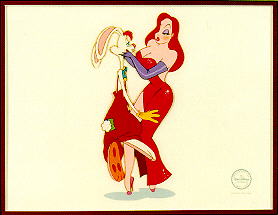Since When Are Feminists Afraid to Talk About Sexuality?
So, during this semester my eyes have been really opened about how ill-prepared our student are to talk about sex, to make healthy sexual choices, and to be good parents who help their children make healthy sexual choices. What I wasn't prepared for was to discover how much the Women's Studies faculty suffers from the cultural dis-ease of talking about sex and helping all of us better understand the complexities of sexuality and sexual choices.
For the last 7 years I have sat on the WS committee at my college. For most of those years I have wanted to scream, when I left the meetings. The majority of women on this committee who have had the power to shape the program did not get PhD.s in an age where feminist theory was respectable or even mainstream. I think it is fair to say that their views of what the field consists of are outdated. They still retain a belief that at any moment men will infiltrate their group and undermine all of their goals. These women experienced horrendous and overt acts of sexism, and hence, tend to view most institutions on the college campus with a hostile eye.
I know and understand why they do it. I can come up with many reasons that explains well what they do. For example, many of them want to distance themselves with the co-curricular aspects of WS programming: e.g. the Women's Center, the Vagina Monologues, Rape Prevention, etc. They fear two things: (1) that they will be forced to accept more professional responsibilities than other departments/programs and (2) that they won't be taken seriously as a legitimate intellectual discipline.
In fact, the latter fear is incredibly palpable in all of their choices. Their orientation toward the world is that no one respects them, knows how rigorous WS is, and so we need to constantly reassert this in our stringent curriculum requirements. They have also built a governance structure that prevents any radical change to the program; to make any change is painful.
And, so, I have disagreed with them at many points in my untenured and now tenured career. I felt rather safe to do so, because they didn't have any power over my tenure decision. However, the bureaucracy that they have built to protect their fiefdom is nearly impossible to crack.
I spent 6 years begging them to move from a consensus model to a strong majority vote. The consensus model either prevented any decisions from being made or forced junior faculty to end up agreeing with tenured faculty for fear of being punished professionally.
The consequences is that the talented, new Ph.D.s, many of whom work alot with gender and sexuality, do not participate in the program, are helpless to change the direction of the program, and hence the program languishes in its antiquatedness.
Tonight I spent 5 hours in a "retreat." The first order of business was to debate changing our name to (a) Gender Studies or (b) Women, Gender, and Sexuality. I was in charge of arguing for the latter title. To be perfectly honest, I would have been happy with either name change, since I think that Women's Studies is a relic from the 80s and doesn't at all reflect the state of the field now. But, I was happy to argue for (b).
My colleague and I studied carefully all the programs that have such a title, considered how this works well to attract new students, new faculty, and accurately reflects the field. I also think this is good for future recruitment as well as working with other programs for joint appointments.
So, what happened? Well, the result absolutely stunned me. Let me keep you in suspension a bit longer about the outcome of this retreat.
First, I need to explain to you that the fact we had gotten to a point where we were going to vote on either of these name changes was a miracle. It reflected 7 years of hard work, including a process whereby we had moved to a strong majority vote. We had entertained for the last two years moving toward some sort of name change to accomodate the insights of queer theory. We invited an expert in queer theory to do a faculty seminar with us, wherein we learned how valuable queer theory criticisms of WS are. We have also had theoretical discussions on how WS might imply a false universalism. (DUH!)
We had also decided to change our mission statement and our curriculum. Changing curriculum, btw, is incredibly time consuming and we realized that deciding the question of a name change would be crucial in guiding us in rethinking what our curriculum should look like. Lastly, we have been handed the gift of a new college-wide curriculum that requires students to take TWO diversity requirements.
So, here we were. Ready to make a bold step into the 21st Century of feminist/queer theory. What happened?
We were forced to vote whether or not we were prepared to vote. We need 17 votes to even consider voting on the names, and only 13 people voted to do so. Why? Those who resisted were all untenured or had only showed up to one other WS meeting in their professional lives at my college.
I hadn't been prepared for this tactic. I was outmaneuvered. Why did this happen? Because the majority of women in that room were not comfortable teaching in a program that had "sexuality" in the title. Yes, I didn't make this up.
What were the arguments against Women, Gender and Sexuality?
(1) The title was too long, too unwieldy. What is the big deal with a name anyway? Why get so exercised over something as little as this?
(2) The History department or the English department hasn't changed their titles even though they might be doing more than what was traditionally considered "English." If English is still English, then Women Studies should keep its name. Why do we have to be trendy?
(3) Will our students really feel comfortable with the word "sexualities" in their transcript? Might they reject the program with its partial emphasis on sexuality? Who will ever hire them with such a major?
That was it. Those were the only arguments. I showed how shallow each of them were in my turn. For your sake, here goes:
Counter Argument (CA) 1: If a name is no big deal, then that cuts both ways, doesn't it? But, the fact is names are really important. What we name a program carries an important message about what we think we are doing. If we are no longer teaching Women's Studies, but asking broader questions about Gender and Sex as systems, then why not point this out in our title?
CA2: Shame on those other departments for failing to be bold enough to challenge the status quo and dominant paradigm. Moreover, shame on them for not having program titles that actually reflect what they are doing. Is Irish literature "English"? What about Anglophone literature from India? What about people in English departments who only teach theory? How about folks in the English department that only teach linguistics?
CA3: ARE YOU KIDDING ME?
Ok, I that wasn't my third counter argument.
But, honestly, I was totally offended. What the hell is wrong with SEX. And, by the way, how many students are really going to avoid a class on, say, AIDS and Africa because it might discuss sex? What about biotechnologies, such as prenatal testing for sex selection? How about a policy course on abortion? What about a course wherein queer studies forces us to rethink some of changes we made in sexual harassment or rape law? Show me a student who would turn that class down? If they did, do you actually believe they would rather sign up for Gender Studies?
Lastly, WHAT program, seriously, WHAT MAJOR takes the temperature of its students to see whether or not they feel "comfortable" with learning something? Give me a break!
My most important argument pointed out how sexuality issues are perhaps the MOST important social issues at the moment: Gay Rights, for example, are the Civil Rights issue of our time. We had a case determining the future of abortion law at the SCOTUS today. More and more high schools are teaching abstinence-only. And, we have church leaders in Africa claiming that AIDS is bad, but condoms are worse.
Can you think of a more important and attractive set of social issues to discuss?
Every time I leave WS meetings I think of the old AA slogan for insanity: doing the same thing over and over again and expecting different results. I am criticizing myself here. I think, hell, feminism is my religion. WS is my church. And, I hate the damn parishoners and the hierarchy.
How do I keep the faith?









